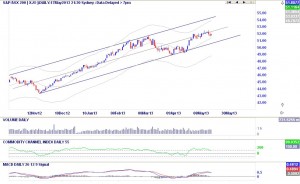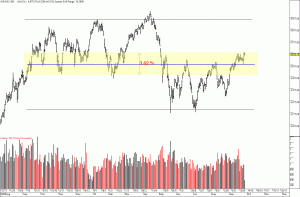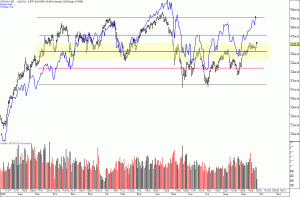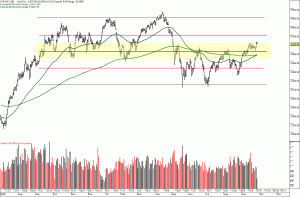From my last post I received a comment (obviously from someone who disagreed with my opinion), but they declined to identify themselves, and I don’t think they actually understood my angle so i didn’t post it as a comment. The first paragraph is pasted below, I felt I need not post the flaming which followed.
“i love how someone who has made a living teaching people useless information they could learn visiting the asx site for 5 minutes takes a slag at advisers who put their balls on the line day in day out in an attempt to make their clients some money.”
(Just a note, I do much more advisory work than training – the lines often blur, but I have not delivered basic training for a number of years. And if you read the article I was supporting advisers)
This got me thinking about education, he/she is right – what is taught by SMC (my employer) is freely available from many sources. But so is 99% of the worlds information. So why do we need specialist educators?
In the days before mass media, information was harder to attain – though not impossible. Since the Internet information is everywhere – google knows everything. The problem remains that any idiot (including me and the poster above) has the ability to put information online. Is this information true, accurate, impartial or an angle to sell viagra?
- “Formal education will make you a living; self-education will make you a fortune.” — Jim Rohn
I have always been an advocate of free information, the more information you have at your disposal the more “informed” you can be with your assessment. This is pointed to people that are a) able to make a decision and b) happy to live with the consequences of their actions.
The problem with free information is that somebody has to pay for this resource, we all have to fund our lives, everything costs money – whether you pay this up front (as in fee for service) or from the back end (as in hidden charges) everything costs. Considering anything different is a little naive. Some would say that free information is essentially worthless.
- “Education costs money, but then so does ignorance.” — Sir Claus Moser
With financial information costs can be extreme – both from up front charges or in self learning, learning from your own mistakes can be far more expensive than any up front fee. I consider myself self taught, but over the years I have attended many training sessions on various subjects, both formal and non formal courses. Some have been valuable, others a waste of time and money.
The courses that I believe to be wasteful, were probably to do with a) my ability to accept and use the information effectively at that time, b) my frame of mind to implement this information and perhaps c) my ability to relate to the person delivering the course and understand the concepts. The courses themselves are not to blame.
The courses I have gotten value from all have the basic fundamentals of a) they have simple concepts b) they are advanced enough to challenge me but not too advanced to overwhelm and most importantly c) I have been in a mental position to accept the information.
There is a lot of information about trading or investing out there in the ether – you can just go grab it but before you do, you may also need to a) assess its validity to you and the current conditions to make sure its still valid b) have a method of testing prior to implementation to gauge the results and c) be able to justify the risk to reward.
My opinion is that everyone needs education on managing their finances, go read a book, do a course with someone reputable and accredited – but learn about this stuff.
Especially with information about trading, I feel that courses can only take you so far – after that your own observation and discipline will be the deciding fact. Trading is an individual thing, being able to make your own decisions based on proven set of guidelines will give you a great advantage, more still being able to evaluate and change your systems when they don’t perform is the real trick.
- “Teachers open the door, but you must enter by yourself.” — Chinese Proverb
After the basic information (even on complex subjects) has been learnt, the only avenue for advancement is a) self evolution or b) mentoring. I think successful people are always students that keep learning, adapting and evolving.
Happy Trading







